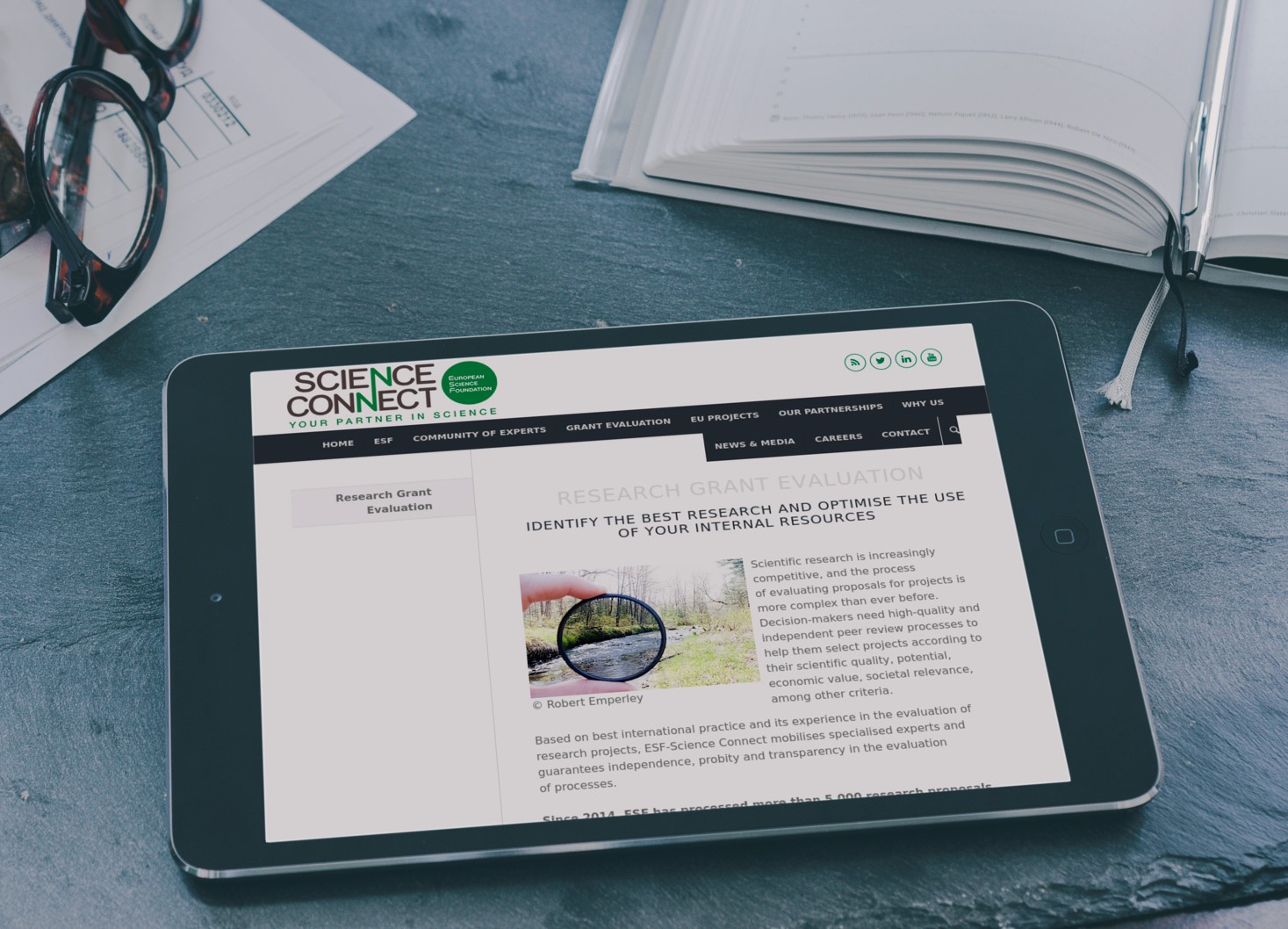ESF identifies the best research proposals for funding on behalf of the Research Foundation–Flanders
[ad_1]
Between December 2018 and August 2019, the European Science Foundation (ESF) – Science Connect provided to the Research Foundation Flanders (FWO) with almost 5000 validated evaluations for research proposals, spanning all domains of research. All evaluation reports put together, would represent a book of 11,000 pages. This is ESF’s largest grant evaluation campaign to date.
With a budget of 350 million euros (2018) available for research in science, engineering, and the humanities, the Flemish public research funding organisation needed to secure the allocation of its resources to the most promising projects in a timely, transparent and independent manner. Thus, it entrusted to ESF the evaluation of its 2,438 proposals concerning two funding schemes: junior and senior Postodoctoral Fellowships and Research Projects.
With a track record of nearly 10,000 research projects and fellowships evaluated across 66 competitive calls that are implemented by international programmes, philanthropies or national funding organisations since 2016 (including the AXA Research Fund, University of Bordeaux, Grand Est Region et al.), ESF has become a major actor in providing independent scientific assessments.
For the 2018-2019 FWO campaign, ESF staff addressed thousands of invitations to matching experts, securing the final involvement of more than 4,000 reviewers (two expert reviewers appointed per application). The expert reviewers provided an informed opinion on the scientific merit of the applications and research projects, in the form of assessment reports which were provided to FWO’s disciplinary expert panels responsible for the selection of the best applications for funding. Throughout the process, ESF ensured that quality standards and ethical guidelines were respected, especially in managing conflicts of interest, ensuring confidentiality and monitoring the quality of the output produced.
Thanks to this partnership, FWO gains access to a wide range of international experts, benefits from an efficient and transparent online scientific evaluation platform and receives high-quality outputs directly transferable to applicants. At the same time, ESF expands its network of partners with top research organisations while continuously improving its scientific assessment process.
After the conclusion of the evaluation, Hans Willems, secretary-general of FWO, declared: “FWO is pleased with the services ESF can deliver for the search and assignment of external reviewers. These should be experts of excellent standing and ESF has managed so far to ensure they were engaged and wrote reviews that were indeed very appreciated by our review panels. Flexible and trustworthy partners like ESF are crucial for organisations like FWO that have to respond to the high expectations of the scientific community”.
Commenting on the partnership with FWO, Nicolas Walter, ESF Chief Executive stated: “ESF has been fully mobilised and committed to provide a very strong basis for FWO’s funding decision. I am very proud of what our staff and community of experts have been achieving through this partnership. I am very much looking forward the 2019-2020 calls”.
European Science Foundation (ESF) – Science Connect: The European Science Foundation (ESF) is a non-profit organisation committed to promoting the highest quality science in Europe to drive progress in research and innovation. ESF operates in the EU and wider European environment and collaborates with major scientific stakeholders.
With over 45 years’ experience in all areas of research, ESF works closely with its members and partners sharing its expertise and establishing diverse partnership opportunities to support scientific decision-making.
It currently hosts five Expert Boards and societies (CRAF: Radio-astronomy frequencies, NUPECC: Nuclear physics, ESSC: Space sciences, the Europlanet Society, and the European Astrobiology Institute. ESF’s Community of Experts plays a vital role in sustaining scientific collaboration and supporting excellence in grant and programmatic evaluation. Today it comprises over 8,000 key experts in all scientific disciplines.

